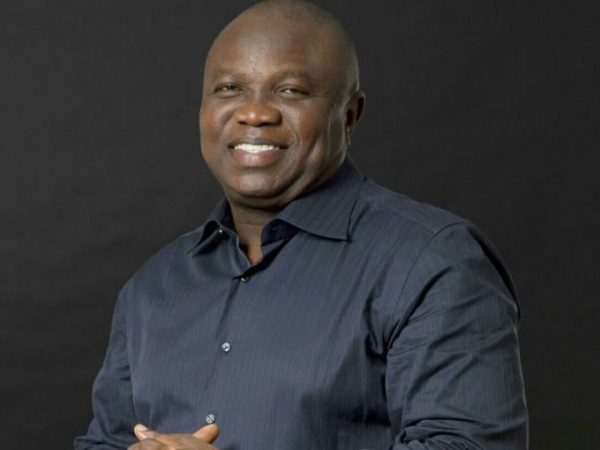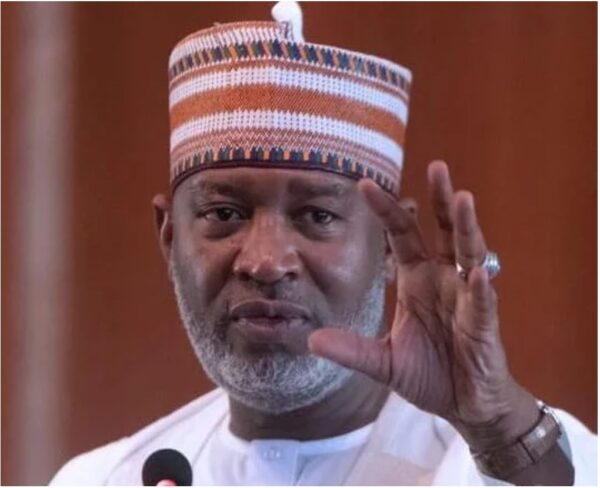At Harvard, Ambode Reveals Plan to Create 250,000 Jobs Annually

- Signs agreements to procure 5,000 new commercial buses
- Says Lagos needs one million housing units per annum
In a well-defined vision to lift thousands from the cycle of poverty and unemployment, Lagos State Governor, Mr. Akinwunmi Ambode, has revealed a new plan to create at least 250,000 direct jobs per annum, starting from the 2018 fiscal year.
The governor has also revealed progress recorded by his administration in the implementation of its Bus Reform Initiative (BRI) in the last one year, noting that he has already signed agreements to procure high occupancy vehicles (HOVs).
These are contained in the text of a lecture the governor delivered recently at the Weatherhead Centre for International Affairs, Harvard University, United States under the chairmanship of Prof. Jacob K. Olupona of the Department of African and African American Studies.
Ambode, who spoke on a topic, “The Development of a Mega City and the Challenges of Urban Poverty: Lessons from Lagos, Nigeria,” acknowledged the enormity of challenges confronting the state despite his multi-pronged approach “to create a Lagos of his dream.”
Under the Lagos State Employment Trust Fund (LSETF) alone, Ambode disclosed that a sum of $13.5 million (equivalent to N5 billion) had been appropriated for in the 2018 budget to provide support for at least 6,000 small and medium enterprises (SMEs).
Aside the employment trust fund, the governor disclosed that the design of the 2018 fiscal plan would create at least 250,000 direct jobs in all critical sectors of the state economy, especially its urban renewal programmes and infrastructure development.
Ambode also noted that the state government had started aggressive implementation of the Bus Reform Initiative, a public purely transportation project his administration designed to ease commute residents daily within the metropolis and phase out commercial bus (a.k.a danfo) from the state.
He therefore revealed that the state government had already signed agreements with automobile conglomerates to purchase 5,000 high occupancy vehicles (HOVs) in phases, noting that 850 of these buses would arrive by June 2018.
He explained that the agreements covered a period of three years within which the automobile companies would provide 5,000 new buses with a clear plan to substantially resolve the challenge of intractable gridlock that beset the Lagos metropolis.
He, specifically, observed that his administration would not focus on the bus reform initiative alone to solve the traffic congestion in the state headlong.
He added that the state government had developed a necessary mix of road, rail and water transportation to make human transit within the state a pleasure rather than displeasure.
Under the 2018 fiscal plan alone, the governor disclosed that three new bus terminals would be created in strategic locations in the state, which he said, was part of his administration’s agenda to ban old means of road and water transportation outrights.
He, however, lamented the challenge of acute housing deficit confronting the state, noting that resolving the challenge effectively would require the construction of at least one million housing units annually for a period between five and ten years.
He acknowledged that the state government alone might not be able to meet this housing requirement, which he said, explained the rationale behind the introduction of a rent-to-own housing scheme for government built estates.
Even with the rent-to-own housing scheme already introduced, Ambode disclosed that the state government had entered into partnerships with different private sector actors to build more houses due to what he ascribed to the massive cost of housing.
While he described the state’s power sector reforms as key to growth and development, the governor said the control of power generation purely by the federal government “has been a major challenge” his administration had been working hard to overcome.
Even though the challenge has not been overcome, the governor noted that the state government had already embarked on an embedded power project initiative, which he said, would lead to the generation of 3,000 megawatts purely for Lagos residents.
He, therefore, said Lagos “is not going to stop people from coming into the state because one of our strengths is the people. Rather, we are implementing reforms in the various sectors to cater for our growing population.
“We have embarked on reforms to decongest our roads, improve connectivity and ease movement in the city. Globally, most mega cities face the same challenges, especially in the area of immigration, transportation, housing and security
“The reason for this is simple. People gravitate towards mega cities in search for pastures green. Mega cities are lands of opportunities and represent hope to many. But many of these people hoping for a better life and hoping to make a living do not succeed immediately.
“So, such people put pressure on the infrastructure, especially our social and physical infrastructure. Lagos today faces an infrastructure deficit of $50billion. That is a conservative figure because it is based on a survey conducted more than a decade ago.”







